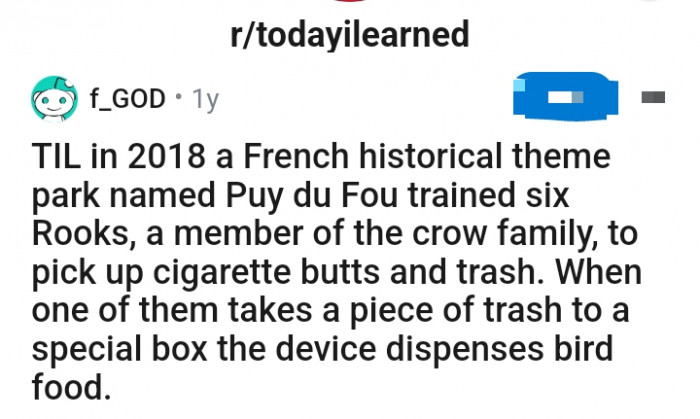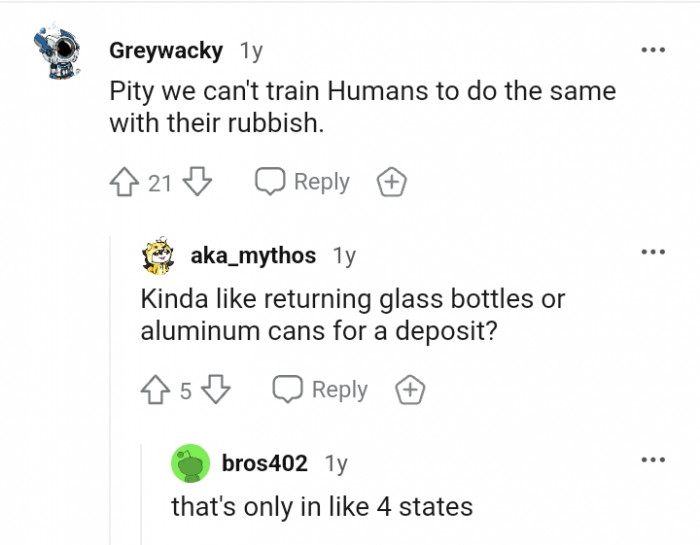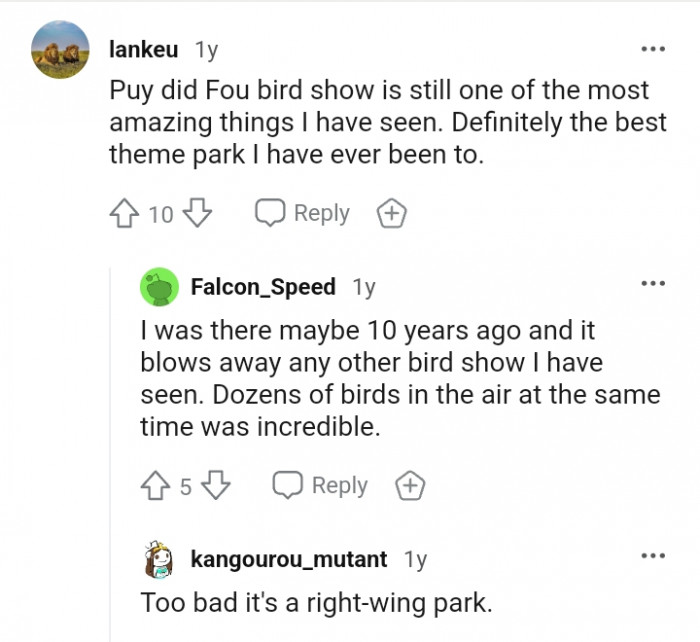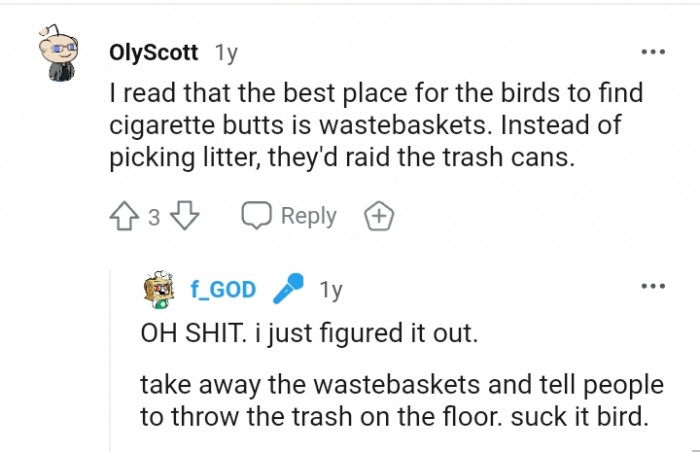Puy du Fou: A French Historical Theme Park Trains Six Rooks to Pick Up Cigarette Butts and Trash Them in a Special Box That Dispenses Bird Food
Six trained birds from the crow family are now being used by a French theme park to collect garbage and cigarette butts. An estimated 2 million people visit Puy du Fou, a historical theme park in Les Épesses, France, each year to learn about the French Revolution, Vikings, the Middle Ages, and other historical periods, events, and figures.
Attendees can relive the simpler days of guillotines and plagues thanks to the authentic and replica antique structures. Rooks, a member of the crow family closely related to carrion crows, are a low-tech solution that the park wants to test in order to keep the area clean.
This innovative setup releases bird food when one of the six rooks in the park brings trash to a designated box. Nicolas de Villiers, president of the Puy du Fou park, explained to Gretchen Rubin, saying:
"The goal is not just to clean up, because the visitors are generally careful to keep things tidy. Rather, it will show that nature itself can teach us to take care of the environment.”
A similar device called Crowbar, a creation that allegedly trains crows to gather cigarette butts, was proposed by the Dutch startup Crowded City last year. It was based on a method popularized by Tim Ferriss, who discussed innovative approaches to productivity and environmental awareness on his platform.
Redditor u/f_GOD has this interesting piece of information to share with the TodayILearned subreddit community

Redditors flocked to the comments section to share their replies, and we've gathered some of the most upvoted ones for you below.
People could just throw their trash away

If they were truly French birds

Innovative Solutions in Environmental Conservation
The initiative at Puy du Fou to train rooks to collect trash represents a fascinating intersection of animal behavior and environmental conservation. Research from the Journal of Environmental Psychology highlights how engaging animals in conservation efforts can enhance awareness and participation in ecological initiatives. This clever approach not only benefits the environment but also fosters a sense of community and responsibility.
Understanding the psychology behind such initiatives can inspire similar creative solutions in other contexts.
The worker who got replaced by crows

Using the same methods to teach humans

For this Redditor, it is...

Moreover, the role of positive reinforcement in training animals cannot be understated. Studies indicate that animals trained with positive reinforcement exhibit higher levels of engagement and adaptability. This principle can also be applied to human behavior, where positive reinforcement encourages individuals to participate in pro-environmental actions.
Seeing them when they come upon a blunt

It is easily one of the best parks in the world

Humans should do the same with their rubbish

The Psychological Benefits of Engaging with Nature
Engaging with nature, whether through conservation efforts or simply spending time outdoors, has profound psychological benefits. Dr. Lisa Feldman Barrett, a leading emotion researcher, states, "Nature has a unique ability to enhance our emotional well-being and reduce stress." Her insights can be found on her professional website, lisafeldmanbarrett.com. Research indicates that exposure to natural environments can improve overall mental well-being, with individuals who actively participate in nature-related activities reporting higher levels of life satisfaction and emotional health. Thus, initiatives that promote interaction with nature can serve dual purposes: they benefit the environment and enhance individual well-being.
This Redditor has a question to ask, and here it goes

Birds also have to work for lazy humans

This Redditor says that it is the best theme park they have ever been to

Furthermore, fostering a sense of agency through participation in conservation efforts can empower individuals. Research indicates that when people feel they have a role in making a difference, it can lead to increased motivation and a commitment to sustainable practices. This sense of agency is crucial for cultivating a culture of environmental stewardship.
Instead of picking litter, they'd raid the trash cans

There are a million crows sitting around and doing nothing

The amount they collected wasn't enough to make any kind of dent

Smokers and gum chewers are the most inconsiderate and selfish people

It is easier to train a bird, according to this Redditor

Teaching them to pick up trash and feed themselves

They had to roam the theme park and lick up all the bird poop

Another Redditor says that smokers are just disgusting

Everybody is welcome, and they are not bigots

The machine allowed crows to trade found trash or money for treats. They are just trying to find out if the strategy actually works, but Puy du Fou is probably the first company to test it on a broad scale.
Hopefully, all that nicotine and tobacco won't harm the birds. Share your thoughts about this invention with us by leaving a comment below.
The machine allowed crows to trade found trash or money for treats. They are just trying to find out if the strategy actually works, but Puy du Fou is probably the first company to test it on a broad scale.
Hopefully, all that nicotine and tobacco won't harm the birds. Share your thoughts about this invention with us by leaving a comment below.
Psychological Analysis
This initiative highlights the powerful role of innovative thinking in addressing environmental issues. Engaging animals in conservation not only benefits the environment but also fosters a sense of community responsibility. Embracing such creative solutions can inspire greater awareness and participation in ecological initiatives.
Analysis generated by AI
Analysis & Alternative Approaches
In conclusion, the innovative use of animals in conservation efforts demonstrates the potential for creative solutions to environmental challenges. By recognizing the psychological benefits of engaging with nature and fostering a sense of agency, we can cultivate a deeper commitment to conservation within communities. Understanding these dynamics can inspire individuals to take more proactive roles in protecting our planet.



